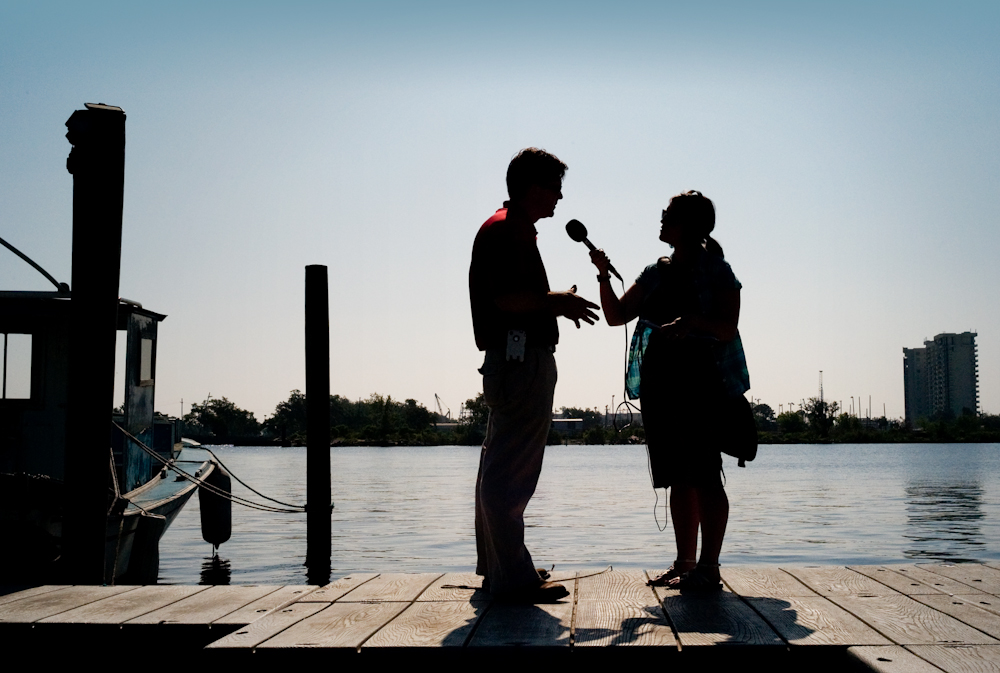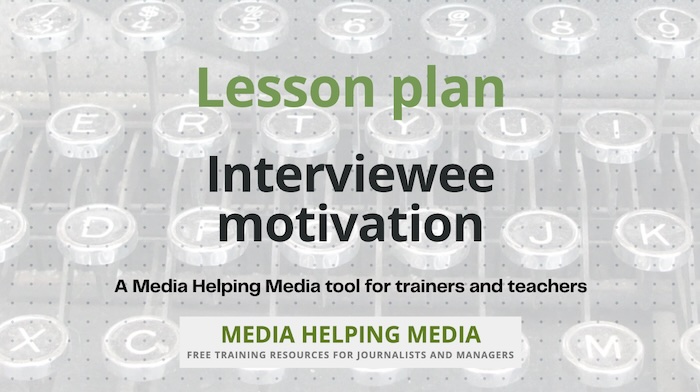 An investigative journalist has to encourage people to share information they had previously withheld. Don Ray sets out the opportunities and challenges.
An investigative journalist has to encourage people to share information they had previously withheld. Don Ray sets out the opportunities and challenges.
There may be many reasons why someone will agree to open up to a reporter, and some will be beyond their control.
It’s worth taking time to try to figure out the motives of the person you want to interview before you start talking to them. It may help you get a better interview.
Why would someone want to talk to a journalist and what might be their motives for doing so?
The following tips are offered to try to help investigative journalists understand more about those they are interviewing.
Why would someone want to talk to a journalist?
- She doesn’t really want to, but it’s her job – she has to.
- He believes strongly in his cause.
- She wants to get the facts right – to set the record straight.
- He’s outraged at something or someone.
- She wants to defend someone else.
- His ego is so big he can’t resist the exposure.
- She feels guilty and wants to confess.
- He wants to defend himself against what others are saying or doing.
- She wants to give the impression she’s not guilty.
- He’s deluded – doesn’t have a clue how foolish he’ll look.
- She’s a sociopath and thinks she can con the journalist.
- He has a hidden agenda.
- She’s obedient and believes that journalists have some kind of authority.
- He thinks it’s just the right thing to do.
- She’s getting paid by someone to talk.
- He’s trying to divert the journalist’s attention from something.
- She’s punishing another journalist or news outlet.
- He hopes the exposure will further his career or help his reputation.
What would motivate a person to talk to a journalist?
- He believes that the journalist really cares.
- She believes that the journalist really understands the story.
- He believes that the journalist is likely to agree with his point of view.
- She believes that the journalist will somehow pay her for the interview.
- He’s rewarding the journalist who is more persistent.
- She’s rewarding the journalist who hasn’t pestered her.
- He wants to talk to a journalist of a particular race, sex, religion, alma mater, etc.
- She co-operates with a journalist who isn’t of a particular race, religion, etc.
- He is impressed with the journalist’s patience.
- She believes that the journalist will be more accurate than the others.
- He believes that the journalist is somehow more sympathetic or empathic.
- He believes that the journalist is more experienced.
- She believes that the journalist is more trustworthy.
- The journalist came highly recommended.
- She’s read/seen/heard the journalist’s work and likes his/her work.
- He believes the journalist is naïve and can somehow be hoodwinked.
- She believes the journalist’s publication/program will reach more people.
- He believes that the journalist is just plain nice.
- She likes the anchors on the journalist’s newscast.
- He believes that he might be able to score with the journalist.
- She believes that the journalist might help her get a job as a reporter.
- He believes that the reporter might have information that could be helpful.
- She supports the perceived editorial position of the publication/station/network.
The investigative journalist should look for the telltale signs of certain feelings, emotions or conditions that may play a part in someone’s decision to co-operate – such as gratitude, trust, responsibility, fear, guilt, greed, curiosity, sport, lunacy, sex, ego and/or pleasure.
By Don Ray

Questions
- What are some reasons a person might agree to speak with an investigative journalist?
- How can understanding a person’s motives help a journalist conduct a better interview?
- Identify three emotions or conditions that might influence someone’s decision to cooperate with a journalist.
- Discuss the role of trust in the relationship between a journalist and their source.
- How might a journalist’s persistence impact their ability to secure an interview?
- Analyse how a journalist’s perceived authority might affect a source’s willingness to share information.
- Evaluate the potential ethical considerations when a source is motivated by financial gain to speak with a journalist.
- How can a journalist’s reputation influence a source’s decision to provide information?
- Examine the various motives for speaking to a journalist into a coherent strategy for approaching potential sources.
- Propose a method for journalists to assess the reliability of the information provided by a source with a hidden agenda.
Answers
- Reasons include job obligation, strong beliefs, desire to set the record straight, outrage, defence of others, ego, guilt, self-defence, impression management, delusion, sociopathy, hidden agendas, obedience, moral duty, financial incentives, diversion, punishment, career advancement, or reputation enhancement.
- Understanding motives can help tailor questions, build rapport, and anticipate responses, leading to more insightful and effective interviews.
- Gratitude, trust, responsibility, fear, guilt, greed, curiosity, sport, lunacy, sex, ego, and pleasure.
- Trust can lead to more open and honest communication, as sources may feel more comfortable sharing sensitive information with a journalist they trust.
- Persistence can demonstrate a journalist’s commitment and seriousness, potentially earning the respect and cooperation of a source.
- Perceived authority might make a source more likely to comply, believing the journalist has the power to influence public opinion or outcomes.
- Ethical considerations include potential bias, conflicts of interest, and the integrity of the information, as financial incentives might lead to manipulation or exaggeration.
- A journalist’s reputation for accuracy, fairness, and integrity can encourage sources to share information, believing it will be handled responsibly.
- A strategy could involve identifying common motives, building trust, demonstrating empathy, and ensuring ethical standards are maintained to encourage cooperation.
- Journalists can cross-check information with multiple sources, verify facts independently, and remain skeptical of information that aligns too closely with the source’s agenda.
Lesson plan for trainers
If you are a trainer of journalists we have a free lesson plan: ‘Interviewee motivation‘ which you are welcome to download and adapt for your own purposes.








